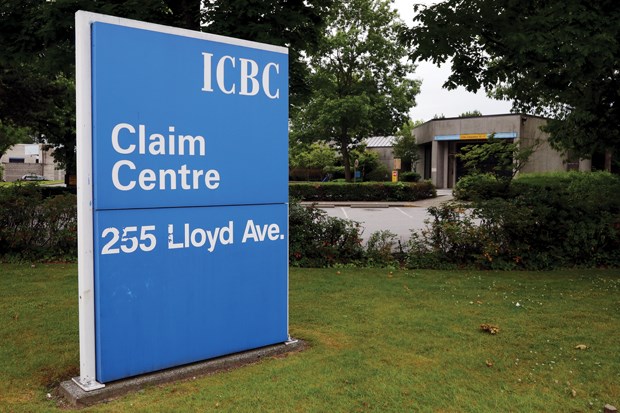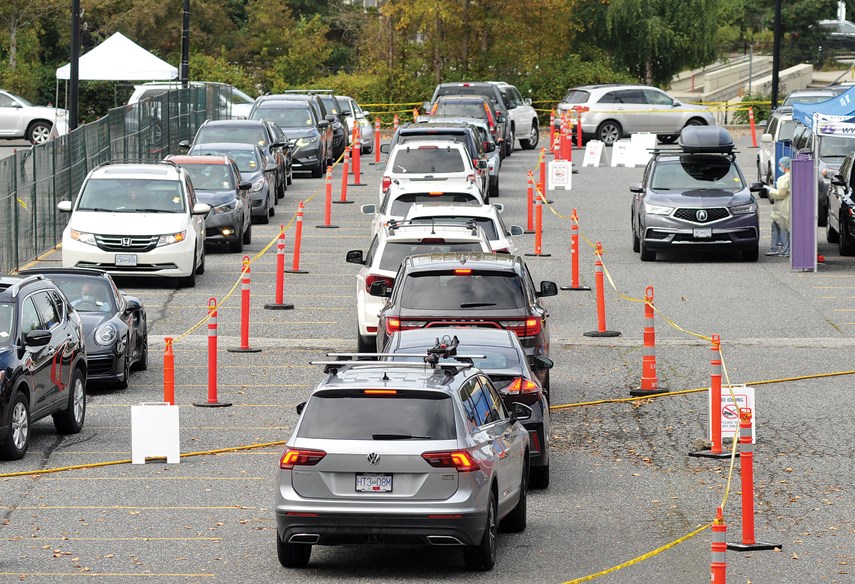Questions about the impact of the COVID-19 pandemic on local business were the focus Wednesday morning as the North Vancouver Chamber of Commerce hosted a virtual meet-the-candidate event for candidates running in the North Vancouver-Seymour riding.
COVID-related issues were two of the top four concerns cited by about 40 business owners who responded to a survey on provincial issues, said North Vancouver Chamber of Commerce Chief Executive Officer Patrick Stafford-Smith. Among those, having access to rapid COVID-19 testing and results that would allow employees to return to work were issues for almost 90 per cent of those responding. Over 70 per cent cited the need to get customers back. “That’s a major issue,” said Stafford-Smith.
Incumbent Liberal MLA Jane Thornthwaite said one of the reasons B.C. has been successful in keeping a lid on the pandemic is that all three parties in the legislature have worked together to follow the advice of Dr. Bonnie Henry, the province’s medical health officer. “That would continue if there was a change of government,” she said.
Thornthwaite said one of the areas most impacted by the testing delays has been the local film industry. “There has been a drastic reduction in filming right now because of a lack of COVID-19 testing,” she said. Actors and the many people who work behind the scenes in the movie business are required to have very regular tests to keep film sets running. “We have to step it up on the testing and get this industry back running again,” she said.
Green Party candidate Harrison Johnston, a university student and climate strike activist, said the ramping up of testing in B.C. has been impressive so far, but there is room for improvement. There also has to be more support for businesses when their employees can’t be at work, he said.
NDP candidate Susie Chant, a registered nurse who works for Vancouver Coast Health and has been directly involved with COVID-19 testing said she supports what the government has done so far to address the issue. Many people can now get their results in 24 hours, she said. Another move under consideration by health officials is a plan to reduce the amount of time that people may be required to self-isolate, she said.
Clayton Welwood, the Libertarian candidate and former leader of his party, said some scientific doubt also exists about whether every positive indicates an active infection, depending on how that test is done.
Thornthwaite said she’s heard from many small business owners who are suffering during the pandemic. Many have had to come up with taxes and pay rents even though they were forced to close for several months.
Thornthwaite criticized the NDP for calling a snap election “that nobody wants” instead of focusing on helping those who need it. Money to assist businesses recently announced by the NDP won’t even be made available to small business until after the election, she said.
Johnston agreed the election hasn’t helped the situation. “It would be wonderful if we had a government and government ministers who were actually focused on this right now,” he said. He pointed to the main problem as job and income losses in the wider community, which have resulted in people putting the brakes on spending. “The customers that would be going into these businesses have been suffering financially,” he said.
“In order to make sure our business community is able to rebuild…we have to be investing in the broader community.”
Chant said the NDP has announced targeted tax cuts to help in areas that are under provincial control.
Welwood said he thinks most of the problem has been government-created. He said given the relatively low mortality rate from COVID-19 he doesn’t think those emergency measures are warranted any longer. “I’m going to call for a lifting of the state of emergency,” he said. “We need to get focused on a return to normal and not to have to keep this lockdown mentality we’ve had. That’s a number one priority – a return to normal.”
Welwood added in some cases, programs like CERB are paying more than workers might make in local businesses, so people haven’t been encouraged to return to work.
Other topics covered at the forum included transportation on the North Shore and housing affordability.
Thornthwaite pointed to her record of advocating for local transportation projects, including the North Vancouver highway interchange project, now nearing completion. Thornthwaite said she’ll continue to push for rapid transit for the North Shore – and in the shorter term, a link at the Second Narrows to connect North Vancouver to rapid transit options in Vancouver. “We need to have the North Shore on the map in regards to TransLink,” she said.
Welwood said while rapid transit would be nice “that would be very costly and it’s probably a decade away.” He said the province also needs to cut red tape to make private transportation options easier. “Not everyone wants to use transit.”
Johnston said the North Shore has been one of the biggest losers in Metro Vancouver when it comes to getting transit infrastructure. Most other communities have received new bridges or rapid transit lines in the last 20 years, he said.
“The government has not prioritized North Vancouver for transit projects,” he said. “If it takes 10 or 15 years to connect, that’s going to be too late.”
Johnston said he’d also like the government to provide subsidies for people who want to buy an e-bike, which are too expensive for many people. Currently subsidies are only available for people who are trading in a car for an e-bike, he said.

Other issues discussed included whether B.C. should be open to private auto insurance as a competitor to ICBC.
Thornthwaite and Welwood said they favoured a private auto insurance option. Under the current system, “I’ve heard stories of new drivers whose insurance has gone up $2,000 a year,” said Thornthwaite.
Chant and Johnston disagreed. “I haven’t seen any evidence that bringing
private insurance in would actually reduce the costs,” said Johnston.
Chant said she would be very cautious in going back to private insurance, because private companies are mainly interested in profit. “There’s a reason we came away from it.”
The North Vancouver Chamber is hosting two more virtual meet-the-candidate events by Zoom this week: a Thursday morning session features candidates in North Vancouver Lonsdale while a Friday session will focus on candidates in West Vancouver Capilano.



